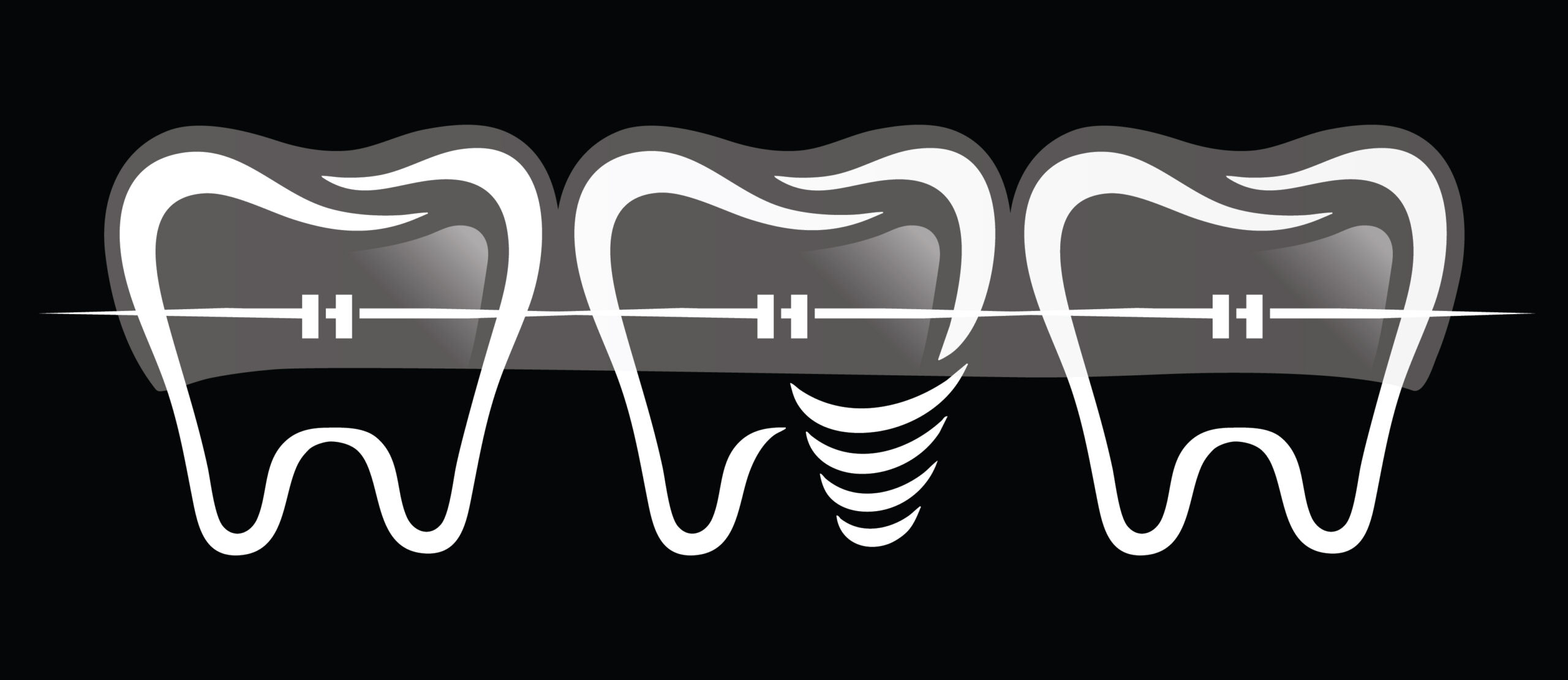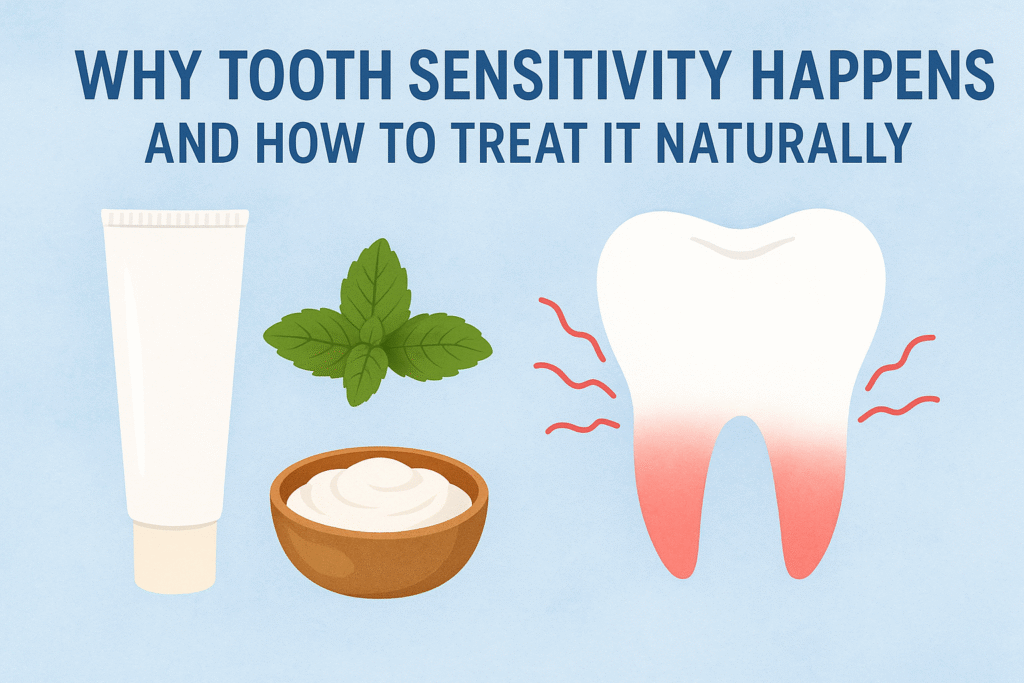Tooth sensitivity is a sharp, sudden discomfort felt when you eat or drink something hot, cold, sweet, or acidic. For many people, this becomes a daily struggle, making even simple pleasures like sipping tea or enjoying ice cream painful. Understanding why tooth sensitivity happens can help you manage it better—and the good news is, some natural remedies can provide relief. As the Best dentist in Mahalunge, Dr. Amruta Motarwar emphasizes that timely care can prevent sensitivity from getting worse and affecting your oral health.
What Causes Tooth Sensitivity?
Tooth sensitivity occurs when the protective layers of your teeth wear down, exposing the inner layer called dentin. Dentin contains microscopic nerve pathways that react to temperature, pressure, and certain foods, causing pain. Here are some common reasons why this happens:
✅ 1. Enamel Erosion
Enamel is the strong outer layer of your teeth. Consuming acidic foods and beverages like soda, citrus fruits, and vinegar can erode enamel over time. Once enamel weakens, teeth become more sensitive.
✅ 2. Gum Recession
Gums may shrink or pull away due to aggressive brushing, poor oral hygiene, or gum disease. When gums recede, the roots of the teeth get exposed, leading to sensitivity.
✅ 3. Teeth Grinding (Bruxism)
Grinding your teeth at night or during stress can cause enamel damage, leading to sensitivity. A night guard recommended by your dentist can help.
✅ 4. Dental Procedures or Misaligned Teeth
Sometimes sensitivity occurs after dental treatments like fillings, whitening, or cleanings. In some cases, misaligned teeth put pressure on certain areas, causing enamel wear. If alignment issues persist, consulting an orthodontic expert for Orthodontic Treatments in Mahalunge can help correct bite problems and prevent further sensitivity.
✅ 5. Cavities or Cracked Teeth
Tooth decay, cracks, or broken fillings expose the inner layers of the tooth, making them highly sensitive.
Natural Ways to Treat Tooth Sensitivity
While it is always best to consult a dentist for proper diagnosis and treatment, you can try some natural home remedies to manage sensitivity. These remedies help strengthen enamel, reduce inflammation, and protect nerves.
🌿 1. Saltwater Rinse
Saltwater has antibacterial and anti-inflammatory properties. Rinse twice a day with lukewarm water and half a teaspoon of salt to soothe irritated gums and reduce discomfort.
🦷 2. Use a Natural Desensitizing Toothpaste
Toothpaste containing natural ingredients like neem, clove, or potassium nitrate can block nerve signals and provide relief. Avoid whitening or charcoal toothpaste, as they may increase sensitivity with prolonged use.
🧂 3. Oil Pulling with Coconut Oil
Swishing coconut oil for 10–15 minutes helps reduce harmful bacteria in the mouth and promotes gum health. Healthy gums protect your tooth roots and prevent sensitivity.
🍵 4. Green Tea Mouth Rinse
Green tea is rich in antioxidants and has anti-inflammatory benefits. A mild green tea rinse twice a day can strengthen enamel and reduce gum soreness.
🧄 5. Clove Oil Application
Clove contains eugenol, a natural pain reliever and antibacterial agent. Applying diluted clove oil to sensitive areas can numb discomfort and improve oral health.
🥛 6. Increase Calcium and Vitamin D Intake
Strong teeth need good nutrition. Milk, yogurt, leafy greens, and sesame seeds help strengthen enamel naturally. Vitamin D aids calcium absorption, contributing to healthier teeth.
🧊 7. Avoid Acidic and Sugary Foods
Reduce intake of soda, packaged juices, lemon water, and sugar. If you consume acidic foods, rinse your mouth with water immediately after to minimize enamel damage.
When Should You Visit a Dentist?
Natural remedies help, but if sensitivity lasts for more than a week or becomes severe, consult a dentist. Persistent sensitivity may indicate underlying issues like tooth decay, infection, or alignment problems that need professional care.
A dental check-up will help determine the root cause, and treatments like fluoride application, dental bonding, root canal, or Orthodontic Treatments in Mahalunge may be recommended if needed. Early treatment prevents complications and restores comfort.
Final Thoughts
Tooth sensitivity is common but manageable. Simple lifestyle changes and natural remedies can reduce discomfort, but professional dental guidance ensures long-term relief. For personalized evaluation and safe treatment options, consulting the Best dentist in Mahalunge, Dr. Amruta Motarwar, ensures your oral health is well taken care of with a patient-friendly approach.
You don’t have to live with tooth sensitivity—timely care, a healthy oral routine, and the right guidance can help you enjoy your favourite foods and drinks without pain.


 Select an element to maximize. Press ESC to cancel.
Select an element to maximize. Press ESC to cancel.